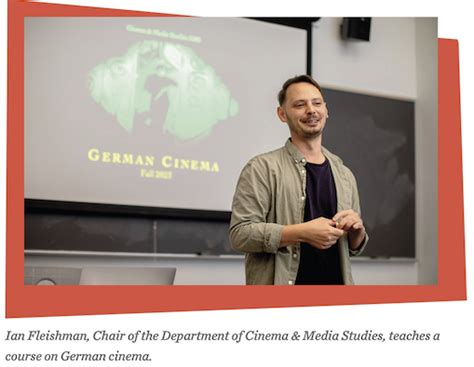Media Studies Careers

The field of media studies offers a captivating array of career paths, each with its unique challenges and rewards. From the bustling world of journalism to the innovative realm of digital media production, the opportunities are vast and diverse. This article explores the diverse landscape of media studies careers, delving into the specific roles, the skills required, and the impact these professionals have on our modern world.
The Dynamic World of Journalism

Journalism, an essential pillar of media studies, is a field that thrives on storytelling and information dissemination. Journalists are the guardians of truth, providing the public with accurate and timely news. In the fast-paced world of breaking news, journalists work tirelessly to gather facts, conduct interviews, and craft compelling narratives.
Specialized Roles in Journalism
Within journalism, there are numerous specialized roles that cater to diverse interests and skill sets. Here’s a glimpse into some of these roles:
- Reporters: These journalists are the front-line storytellers, covering a range of topics from politics to sports. They conduct thorough research, interview sources, and craft engaging articles.
- Broadcast Journalists: With a focus on visual storytelling, broadcast journalists work in television and radio. They produce news segments, conduct live interviews, and often have a strong on-camera presence.
- Photojournalists: Photojournalists capture powerful images that tell stories. Their work is a unique blend of photography and journalism, often capturing the essence of an event or issue.
- Data Journalists: In the era of big data, data journalists use their analytical skills to uncover trends and insights. They visualize data, creating infographics and interactive reports that enhance the understanding of complex information.
| Journalism Role | Description |
|---|---|
| Editor | Editors oversee the content and quality of publications. They work with writers to refine stories, ensure accuracy, and maintain the publication's style and tone. |
| Multimedia Journalist | Multimedia journalists are versatile, handling various media formats. They write articles, produce videos, and create engaging content for online platforms. |
| Foreign Correspondent | Foreign correspondents report from overseas, providing unique insights into global affairs and cultures. They navigate language barriers and cultural differences to deliver important stories. |

The Creative Realm of Media Production

Media production is an art form, requiring a blend of creativity, technical expertise, and storytelling prowess. Professionals in this field bring ideas to life through various media formats, from films and television shows to digital content and advertisements.
Key Roles in Media Production
The media production landscape is diverse, offering a range of exciting career paths. Here’s an overview of some key roles:
- Directors: Directors are the creative visionaries behind films, television shows, and commercials. They guide the entire production process, from script development to final editing.
- Producers: Producers are the project managers of the media production world. They handle the logistics, budgeting, and overall organization of a production.
- Cinematographers: With a focus on visual aesthetics, cinematographers capture the perfect shot. They work closely with directors to create visually stunning scenes.
- Editors: Editors are the story craftsmen, piecing together footage to create a cohesive narrative. Their work involves precise timing and a keen eye for detail.
- Digital Media Producers: In the digital age, these producers create content for online platforms. They produce web series, vlogs, and interactive content, often with a focus on engagement and viral potential.
| Media Production Role | Description |
|---|---|
| Screenwriters | Screenwriters craft the scripts that become films and television shows. They develop characters, plotlines, and dialogue, bringing stories to life on screen. |
| Sound Designers | Sound designers create and manipulate sound effects, music, and dialogue to enhance the audience's experience. Their work is crucial in setting the mood and atmosphere. |
| Visual Effects Artists | Visual effects artists use technology to create stunning visual effects. They bring imaginary worlds, creatures, and phenomena to life on screen. |
The Impact of Media Studies Careers
Media studies careers have a profound impact on society. Journalists keep the public informed, holding power to account and fostering transparency. Media producers create content that entertains, educates, and inspires, shaping cultural narratives and influencing public opinion.
The Evolving Media Landscape
The media landscape is constantly evolving, driven by technological advancements and changing consumer preferences. This evolution presents both challenges and opportunities for media professionals.
- Digital Transformation: The rise of digital media has revolutionized the industry. Media professionals now navigate a landscape of online platforms, social media, and streaming services, requiring adaptability and digital literacy.
- Content Creation and Distribution: With the ease of content creation and distribution, media studies graduates have the power to become content creators themselves. From vloggers to podcasters, the opportunities for self-expression and entrepreneurship are vast.
- Data-Driven Insights: Big data and analytics are transforming media strategies. Media professionals can leverage data to understand audience preferences, optimize content, and make informed decisions.
| Evolutionary Trend | Impact |
|---|---|
| Personalized Content | With algorithms tailoring content to individual preferences, media professionals must create content that resonates with diverse audiences. |
| Social Media Influence | Social media platforms have become powerful tools for content distribution and audience engagement, requiring media professionals to master these platforms. |
| Global Reach | The internet has broken down geographical barriers, allowing media professionals to reach global audiences and collaborate across borders. |
Conclusion
The world of media studies is a vibrant and ever-evolving landscape, offering a plethora of career opportunities. Whether one chooses the path of journalism or media production, the impact of their work is profound, shaping how we understand the world and influencing cultural narratives. As the media landscape continues to evolve, the skills and creativity of media studies professionals will remain at the forefront, driving innovation and keeping us informed, entertained, and inspired.
What skills are essential for a career in media studies?
+Media studies careers require a unique blend of skills. Strong communication and writing abilities are fundamental, along with creativity, critical thinking, and a keen eye for detail. Technical skills, such as proficiency in digital tools and editing software, are also crucial. Additionally, the ability to work collaboratively and adapt to changing trends is essential in this dynamic industry.
How can one stay updated with industry trends in media studies?
+Staying informed is crucial in the media industry. Professionals can achieve this by following industry publications, attending conferences and workshops, and engaging with online communities and forums. Additionally, keeping an eye on social media trends and emerging technologies can provide valuable insights into the evolving media landscape.
What are some common challenges faced by media professionals?
+Media professionals often face challenges such as tight deadlines, the pressure to produce high-quality content, and the need to stay updated with rapidly changing technologies. They must also navigate ethical dilemmas, such as maintaining journalistic integrity and balancing the interests of various stakeholders.



